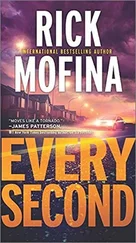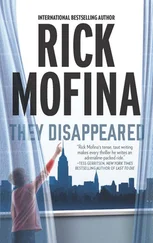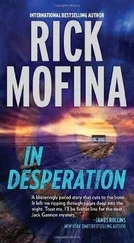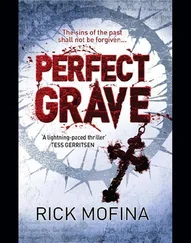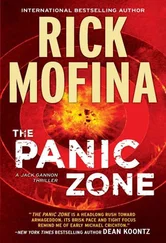“You have to let us do our job.”
“I’m not stopping you.”
“Kate, we know-” Kennedy stopped to see news cameras recording them on the other side of the glass. “Would someone shut the blinds? Now, Kate, we know where you’ve been, who you’ve talked to and what you’ve been doing.”
“You’re stating the obvious, since I wrote about it for Newslead.”
“Yes, and I will thank you for keeping evidentiary details out of your story. That was important.”
“I’m not stupid, Captain.”
“I wasn’t suggesting that, Kate. We’re concerned about tipping off the suspect to everything we know. Our focus is finding Nelson and arresting him while we determine the scope of his crimes and identify the victims.”
“And everything points to my sister being one of them.”
“Yes, I’m afraid that’s possible. We haven’t identified the remains yet. Kate, you have to brace yourself for the possibility that she’s a victim.”
“That’s what I’ve been doing all of my life, Captain. But if you know something that I don’t, if those are Vanessa’s remains that you found, then you tell me right now!”
“At this point, we don’t know who the deceased is. But when the pathologist confirms the identity, we’ll release the information.” Kennedy paused. “Kate, we’re urging you not to interfere, to back off.”
“No. I’m not going to be the docile, grieving family member on the sidelines. I have a constitutional right to ask questions. I’ve lived with this all of my life. I’ve got a blood right to the truth. I’ll never back off.”
“We’re asking you to exercise a little judgment here.”
“Kate.” Kennedy rubbed his chin. “Just to remind you, those charges against you can always be brought back.”
“Are you threatening me?”
“No, but consider the ramifications. Kate, it’s dangerous to get too close to a case, especially when it concerns a dangerous fugitive.”
“He’s right, Kate,” Brennan said. “Nelson’s at large, and you’re involved in this. You should dial things down.”
“No, I’m not backing off.”
“All right,” Kennedy said. “I think we’re done here.”
Leaving the town hall with Jay, Kate was stopped by reporters insisting on more comments. Kate kept them short, then headed with Raney to his SUV.
“AP’s shooting still images for the pool,” he said. “Bloomberg will send copy. We should go with the pack to Nelson’s house, see what we can find there.”
“Sure, but I have to file something first. Let’s grab a coffee somewhere and I’ll write.”
At that moment, her phone rang.
“Kate, this is Nicky Green from the library. I found that news story from Denver you wanted, the one about a license plate and missing girl in Canada.”
“Great. Can you send it to me?”
“Just did.”
Rampart, New York
Three blocks from the town hall, Kate and Raney shared a booth in Sally’s Diner.
Kate was anxious to read the old clipping from Denver, but her deadline was looming. She needed to file her story, and she was hungry.
While waiting for their food, they set up their laptops. Raney selected and adjusted images he’d shot at the news conference. Kate inserted an earpiece, plucked key quotes from her recorder, consulted her notes and wrote, her keyboard clicking softly as she tuned out the noise around her.
By the time the waitress set their burgers down-“My, you two are busy bees”-Kate was well into her story, stopping at each paragraph to take a bite. When she’d finished she’d filed seven hundred clean, solid words to Newslead, just under the deadline.
Raney was on the phone to the photo desk in New York. While he talked, Kate went to her email and the Colorado article. It was from the Denver Star-Times , a community weekly that had ceased publication nearly ten years ago. It was a short item:
Police Probe Possible Denver Link to Missing Canadian Girl
By Will Goodsill
Denver detectives are investigating a possible local link to a ten-year-old Canadian girl who recently went missing from a truck stop in Alberta, Canada.
Tara Dawn Mae vanished last week from the Grand Horizon Plaza, along the Trans-Canada Highway at Brooks, Alberta, about 100 miles east of Calgary.
Canadian authorities gave Colorado law enforcement officials a list of partial license plates and descriptions of vehicles that were in the area at the time, with a request to verify them in relation to the Canadian case.
“We’re running them down where we can, eliminating possibilities. A few are promising leads, but it’s a needle-in-a-haystack thing,” a police source told the Star-Times .
A stamp-sized photo of Tara Dawn accompanied the article.
Kate reread the piece, drawn to the quote “A few are promising leads.” Which few? What happened to them? Who was the source? Did Carl Nelson ever live in Denver?
I need to follow this, but it’s going to take time.
Raney ended his call, then snapped his laptop shut.
“Ready to go, Kate?” He signaled the waitress for the checks.
* * *
A few minutes later, Raney pulled onto Knox Lane and rolled by Nelson’s modest ranch-style bungalow with its tidy yard.
The situation was different from when Kate was last here. The entire property was sealed with yellow tape and Rampart officers had been posted to keep people out. The street was sprinkled with news vehicles. Nelson’s neighbors were giving doorstep and sidewalk interviews, their faces etched with concern. Some held their children close.
Kate and Raney approached a man and woman in their thirties, who’d just finished talking to a TV crew on the sidewalk, two doors down from Nelson’s house. The couple, Neil and Belinda Wilcox, agreed to have their picture taken and to talk about their missing neighbor.
“It shocks you to the core.” Belinda cupped her hand to her cheek and stared at Nelson’s house. “It’s frightening. We had him in our home once.”
“Really?” Kate took out her notebook. “Tell me about that?”
“Well, it sounds cliché,” Neil started, “but Nelson kept to himself. He was a hermit.”
“Yeah,” Belinda added. “With his long hair and beard, he looked like one.”
“Yeah, well, one day in winter,” Neil continued, “he was clearing his driveway and I’d run out of gas for my snowblower. I asked him if I could borrow some. Well, I got telling him how my computer didn’t work and he volunteered to fix it. It took him about two minutes, the guy’s a genius.”
“Another time,” Belinda recalled, “I saw that he had like a ton of groceries in the back of his truck. I asked him if he was feeding an army, because we knew he lived alone. He was kind of startled and said he was donating a lot to a soup kitchen in Ogdensburg.”
The Wilcoxes remembered little else that was noteworthy. Raney indicated an older man and woman across the street, walking a golden retriever, and they went to them.
Doris Stitz was a retired schoolteacher, and her husband, Harvey, was a retired mechanic. They lived at the corner of the street.
“We came down to see what all this fuss was today,” Harvey said.
“We’ve been following the story in the news,” Doris said. “And it’s just getting worse and worse. It’s so awful. You never expect this kind of thing in our quiet little town.”
“Did you ever meet Nelson?”
“Once,” Harvey said. “He seemed friendly enough, but it felt like it was forced. You got a sense that he wanted to be left alone.”
“How so?”
“Just an air about him. It was last year. Boone, here, got off his leash and chased a squirrel into Nelson’s backyard. I rang his doorbell and asked if I could go get my dog. Nelson just gave off this icy air, like he didn’t appreciate being bothered, or want anybody on his property. Then he said I could go get Boone. I didn’t notice anything back there. It was all very well kept, very neat. On my way out with Boone, Nelson looked at my ball cap, asked if I was a Broncos’ fan. I said damn straight I am, then Nelson smiled and that was it.”
Читать дальше
Конец ознакомительного отрывка
Купить книгу


